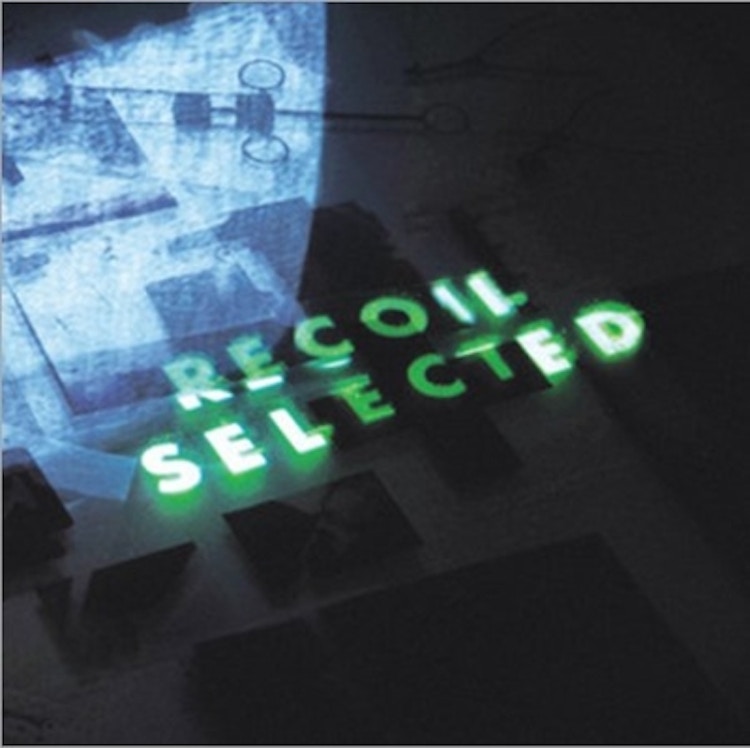Recoil – Selected
"Selected"

It would take a cold heart not to be warmed by the sight of Alan Wilder taking the stage to play piano for his old band earlier this year at the Teenage Cancer Trust gigs. For many, Wilder was an integral part of Depeche Mode, as important as Gahan’s voice and presence, for Gore’s songs and nipples, and Fletch for his, ahhh, well, I’ll get back to you on that one. Everyone likes a good reconciliation, allowing one to take stock of what has gone before and to look to what the future brings. And Wilder seems to be doing a similar thing here with this collection of what he considers to be the finest moments from his own band, Recoil, edited by the author into what he hopes is a cohesive listening experience.
Recoil started as somewhat of an oddity. Whilst Martin Gore wrote the songs in Depeche Mode, it was Wilder who shaped and honed them, his considerable skills turning rather flat sketches into epic compositions. Anyone who has heard the original demo for ‘Enjoy The Silence’ can truly appreciate this, Wilder responsible for most the decisions that turned it into the iconic song it is, and his baroque, monumental arrangement for ‘Never Let Me Down’ remains the most powerful track of their career. Recoil though is the other extreme. Originally conceived as a way of easing the boredom of touring, they are rather understated in structure, often lose ideas fleshed out with samples and beats, repetitive and often quite low-key. A lot of the songs are instrumentals, occasionally augmented by guest vocalists. The closest comparison is probably label mate Moby, but with less of a knife for the edit, Wilder often letting the songs ramble in a cyclic fashion. At times, this does achieve the required hypnotic state, but often causes the songs to become rather tiresome and tedious.
Songs such as ‘Strange Hours’ and ‘Faith Healer’ never really get going, the former taking an age to establish itself before meandering about in an aimless fashion. ‘Jezebel’ as well is just an annoyance, sounding dull and flat. Better is “Allelujah”, showing a hint of ambition and a degree of glamour, but again it plods along at a glacial pace, with little variation.
Nothing though can prepare you for the creepy ‘Luscious Apparatus’, taken from 1997’s Unsound Methods Maggie Estep vocal and lyric is unsettling, for once the music working well with the threat of the spoken delivery, leaving the listening feel rather soiled and unnerved. ‘Shunt’, from the same album is also one of the better tracks, a whispered vocal set to a shimmering electronic backdrop. However, on the whole this is a rather tedious album, with a few points of interest but little to hold the attention.
Get the Best Fit take on the week in music direct to your inbox every Friday

Lorde
Virgin

OSKA
Refined Believer

Tropical F*ck Storm
Fairyland Codex





